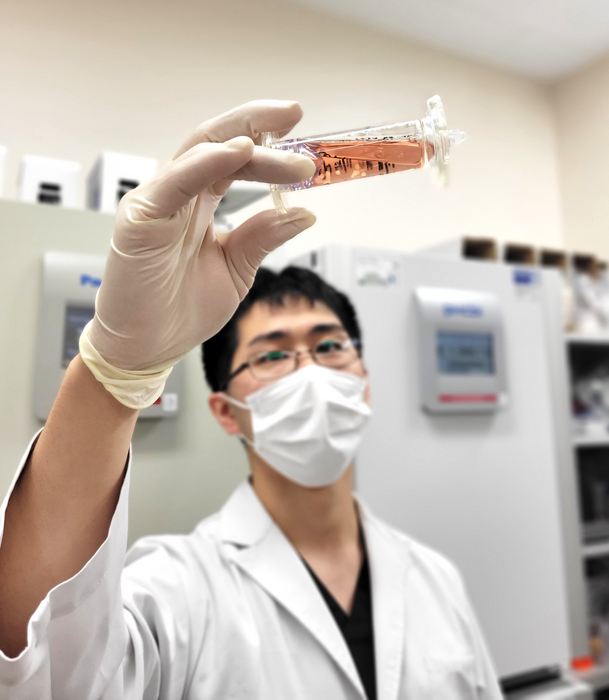Researchers from Tokyo Medical and Dental University (TMDU) find that spheroids grown in suspension mature into human intestinal organoids when transferred to a bioreactor and differentiate into complex intestinal tissue upon transplantation

Credit: Department of Gastroenterology and Hepatology, TMDU
Researchers from Tokyo Medical and Dental University (TMDU) find that spheroids grown in suspension mature into human intestinal organoids when transferred to a bioreactor and differentiate into complex intestinal tissue upon transplantation
Tokyo, Japan – Growing human body parts in the lab is a common trope of horror movies and sci-fi books. But growing miniature organ-like tissues in the lab is already within our reach. Researchers from Japan have developed a new approach that enables intestinal mini-organs to be grown more easily and efficiently in the lab. This holds immense promise for regenerative medicine.
In a study published in November in Cell Reports Methods, researchers from Tokyo Medical and Dental University (TMDU) reveal that applying a few specialized lab techniques yields intestine-like tissues of predictable size and composition.
Organoids are organ-like balls of cells that are grown in the lab from spheroids (even smaller balls) of human cells and mimic the properties of the organ from which the “seed” cell was taken. Organoids are used for studying organ function in a lab setting and are also promising tools in the field of regenerative medicine.
“There are established methods for growing human intestinal organoids (HIOs) from induced pluripotent stem cells (iPSCs),” states Junichi Takahashi, first author of the study. “However, these techniques are challenging to perform. They result in spheroids of varying sizes and are limited by the growth conditions, which can result in deformed and unhealthy spheroids over time.”
To develop a more robust and consistent way to generate HIOs, the researchers explored the use of cell culture plates made with an ultra-low attachment polymer to encourage the cells to detach and grow in suspension. They also tested the effects of growing the resulting spheroids in a bioreactor, a specialized incubator that keeps the growth medium constantly flowing to improve the health of the cells.
“Using our technique, we were able to grow spheroids of a predictable, consistent size that could be modified by modulating the number of cells seeded into the plates,” says Tomohiro Mizutani, corresponding author of the study. “Furthermore, transferring the spheroids to a bioreactor allowed them to grow even larger, into healthy HIOs.”
These organoids were surrounded by mesenchyme, which is a type of tissue found between organs in the human body. Importantly, when the organoids were transplanted into mice, they continued to grow and differentiate, developing a complex tissue architecture reflecting that of mature intestine. “Our findings show that intestinal tissue can be generated from iPSC-derived HIOs by inducing spheroids in suspension and maturing them in a bioreactor,” says Takahashi.
Given that more complex intestinal tissues have been generated using traditional techniques, it is likely that this new approach could be easily adapted to create more complex organoids, such as intestine-like tissue containing blood vessels or nerves. These lab-grown tissues will be invaluable for regenerative medicine applications in the future.
###
The article, “Suspension Culture in a Rotating Bioreactor for Efficient Generation of Human Intestinal Organoids,” was published in Cell Reports Methods at DOI: 10.1016/j.crmeth.2022.100337.
Journal
Cell Reports Methods
DOI
10.1016/j.crmeth.2022.100337
Article Title
Suspension culture in a rotating bioreactor for efficient generation of human intestinal organoids




